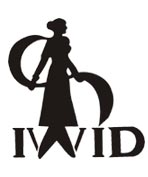HARIT PRAYAS’s Success Saga
This is the story of Ashok Ahirwar,
s/o Kishori Lal, a dalit farmer, who lives in our project village Raseena, situated in the Babina Block of Jhansi
Raseena is a remote village, 32
kilometers from away from Jhansi
This village has approximately 300
households. 50% of the population is schedule caste. The main source of income
for the schedule caste community is agriculture and labour. Most of the Dalit
farmers are marginalized farmers (0.50 decimal to 5 acres). The agricultural
plots have red soil and the land is not much fertile. For irrigation farmers
are dependent on monsoon only. A few farmers have wells for irrigation purpose.
The chief Rabi crop is wheat and the main kharif crop is ground nut. The average production of wheat is 10-12
quintals/acre.
Raseena is one of the project villages
of the Harit Prayas. One and a half year ago, team Harit Prayas of Jhansi
Catholic Seva Samaj (JCSS) started rapport building with the community members.
After a series of meeting with community members one farmers’ club was formed
namely, Jai Bajrang Kisan Club. It has 13 members. In monthly meeting farmers
discuss the method of organic farming and its benefits. The cluster coordinator
facilitates the meeting.
Just before the Rabi season a small
demo plant on vermin compost was established in the village. The name of the
beneficiary was Ashok Ahirwar. He is the
member of Jai Bajrang Kisan Club. Ashok, a hard working farmer, happily got the
small demo plant establish at his farm land. After a month he had 50 kg vermi
compost with him. He had also received trainings organized by JCSS on organic
farming with help of K.V.K, Jhnasi, under project Harit Prayas. Ashok practice,
whatever he learnt. He went for 100% organic farming and did not use even an
iota of DAP & Urea, in 1 bigah of land. As a result the wheat produce was
increase. But most important thing is the input cost decreased and the
production increased and he sold the organic wheat at the price of INR 1400/-
per quintal. On the other hand market price for wheat is INR 1000/- per quintal
(sold by small farmers at door step).
Following is the table showing the
profit Mr. Ashok made due to organic farming, with help of project Harit
Prayas…………..
Increase in Livelihood: Cost-Benefit
analysis
It is quite clear from the comparative
analysis in the above table that the increase in the income of a dalit farmer
is 115.05 %. The PMF of the Harit Prays mandates that 627 HHs (Agriculture)
will have 25 % increased production (5% in 1st year, 15% in 2nd year and 25% in
3rd year) so that ‘food security is ensured leading towards reduction in
migration. Here, we have a case story of Ashok Ahirwar (a dalit farmer) whose income increased up to
115.05%, in Rabi crop, due to project Harit Prayas and efforts of Harit
Prayas team of JCSS.
The contact number of Ashok Ahirwar is
09451921187. May some farmers of
other project be interested in learning/getting motivation from him!
Market linkages: Glocalisation (Globalisation
+ Localisation)
Courtsey : HARIT PRAYAS Jhansi team
+++++++++++++++++++++++++++++++++++++++++++++++++++++++++++






